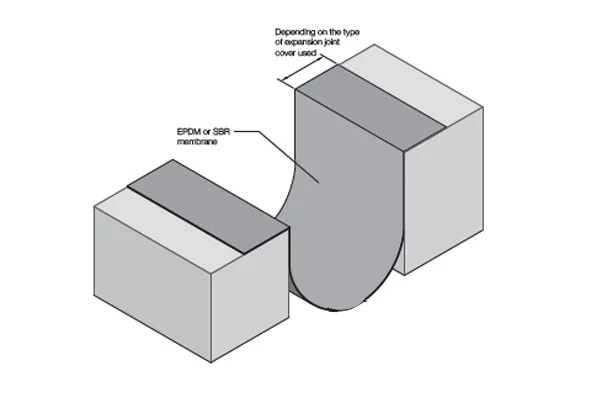KUALA LUMPUR, June 13 — The expanded Sales and Service Tax (SST), which will come into effect on July 1, covers most healthy food groups amid Malaysia’s non-communicable disease (NCD) crisis.
According to the gazetted Sales Tax (Rate of Sales Tax) Order 2025, a 5 per cent sales tax will be levied on multiple fish groups, seafood, beans and legumes, imported fruits, coconut water, cereals, nuts, seeds, healthy cooking oils, and most dairy products (except milk).
Below are some of the following healthy food products that will be taxed (this is not an exhaustive list):
Fish
- Salmon
- Tuna
- Herring
- Sardine
- Mackerel
- Indian mackerel (ikan kembung)
- Silver pomfret
- Cod
- Haddock
- Trout
According to health website Healthline, fish is among the healthiest food groups, loaded with important nutrients like protein and Vitamin D, besides omega-3 fatty acids.
Seafood
- Lobster
- Crab
- Oysters
- Scallops
- Mussels
- Cuttle fish and squid
- Clams
- Sea urchins
- Octopus
Seafood is a concentrated source of many essential nutrients. Fish and shellfish, like salmon, clams, and shrimp, are particularly high in protein plus vitamins and minerals, like vitamin B12, selenium, and zinc, according to Healthline.
Beans and legumes, plus certain vegetables
- Peas
- Beans
- Spinach
- Sweet corn
- Potatoes
Beans and legumes are excellent sources of dietary fibre, protein, B vitamins, and many other important vitamins and minerals, according to Healthline.
Imported fruits
- Bananas
- Pineapple
- Avocado
- Guava
- Mango
- Mangosteen
- Oranges
- Grapefruit and pomelos
- Grapes
- Lemons
- Watermelon
- Papaya
- Apples
- Pears
- Apricots
- Cherries
- Peaches
- Plums
- Strawberries, raspberries, blackberries, currants, cranberries
- Kiwifruit
- Durian
- Persimmons
- Longan, mata kucing
- Lychee
- Rambutan
- Langsat
- Jackfruit
- Starfruit
- Dragon fruit
Fruits are an excellent source of essential vitamins and minerals, and they are high in fibre. Fruits also provide a wide range of health-boosting antioxidants, including flavonoids, according to Medical News Today.
Fruit and vegetable juices
Coconut water is listed together with fruit and vegetable juices in the Order. According to Healthline, coconut water is a delicious, electrolyte-filled, natural beverage that may benefit your heart, moderate your blood sugar, help improve kidney health, and keep you refreshed and hydrated after a workout. Just avoid products with added sugar.
Cereal, nuts, seeds
- Corn flakes
- Prepared foods obtained from unroasted cereal flakes or from mixtures of unroasted cereal flakes and roasted cereal flakes or swelled cereals
- Bulgur wheat
- Fonio
- Quinoa
- Triticale
- Brazil nuts
- Cashew nuts
- Almonds
- Hazelnuts
- Walnuts
- Chestnuts
- Pistachios
- Macadamia nuts
- Kola nuts
- Areca nuts
- Pine nuts
- Buckwheat seeds
- Millet seeds
- Canary seeds
Nuts and seeds deliver protein, fibre, and nutrients, according to Harvard Health Publishing. Ancient grains like quinoa, millet, and fonio tend to be less processed and boast more vitamins, minerals, and fibre than more common grains, according to Healthline.
Dairy products
- Yoghurt
- Cream
- Butter
- Cheese
In moderation, butter can be a healthy part of your diet. Similarly, a balanced diet for most people can include cheese. The best yoghurts for your health contain fewer added ingredients and no added sugar.
Cooking oils
- Olive oil
- Sunflower-seed oil
- Safflower oil
- Rapeseed (canola) oil
- Corn oil
All of these healthy cooking oils, according to the American Heart Association, contain more of the “better-for-you” fats and less saturated fat.
According to the Ministry of Health’s (MOH) National Health and Morbidity Survey (NHMS) 2024: Nutrition report, both adolescents and adults in Malaysia do not eat the recommended servings of various food groups: fruits; vegetables; cereals; meat, poultry and eggs; fish and seafood; nuts and legumes; and milk and dairy products.
MOH has also repeatedly touted its “Suku Suku Separuh” plate for a healthy diet, comprising a quarter of fish, poultry, meat, and legumes; a quarter of rice, noodles, bread, cereals, cereal products, and tubers; and half a plate of fruits and vegetables.
SST On Nicotine Gum, Medical Cannabis, Hemp Fibre
The expanded SST covers nicotine chewing gum, a smoking-cessation product.
Surprisingly, the Order also lists “cannabis, in cut, crushed or powdered form” and “cannabis in other forms” under the sub-category titled “of a kind used primarily in pharmacy” for the plants and parts of plants category.
“Cannabis resins”, “extracts and tinctures of cannabis”, and “true hemp (Cannabis sativa L.) raw or processed but not spun; tow and waste of true hemp (including yarn waste and garnetted stock)” are also listed for taxation. The latter refers to hemp fibre.
The MOH has yet to respond to CodeBlue’s queries on whether the government legalised medical cannabis.
Health Minister Dzulkefly Ahmad told Parliament last March that scientific proof is required for approval of medical cannabis.
He reportedly said that currently, there are no registered cannabis-based products for medical use under the Control of Drugs and Cosmetics Regulations 1984.
Cannabis is classified as an illicit drug under the Dangerous Drugs Act 1952. However, cannabis cultivation may be permitted for research or medical purposes at a designated location.







